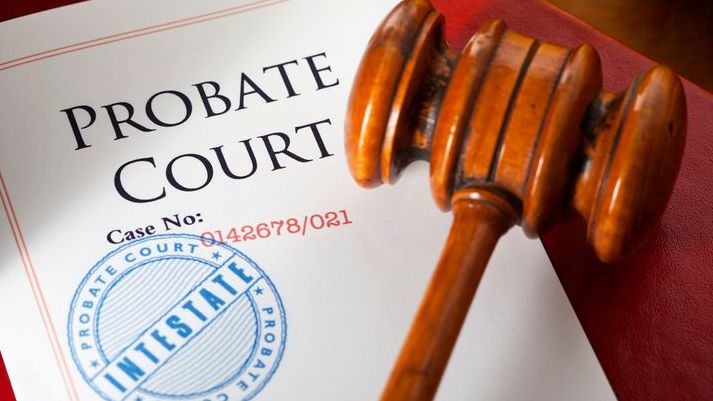Probate is often required when a person dies and leaves behind assets that are not automatically transferred to heirs or beneficiaries. Typically, this is required when the deceased owned real estate, had significant financial accounts or possessed personal property of substantial value. However, exceptions exist, such as when assets are held in joint tenancy or a living trust. Understanding the specific circumstances that necessitate probate can help in planning and managing an estate effectively.
Understanding the Probate Process
The primary purpose of probate is to validate a deceased person’s will, confirm that any outstanding debts are paid and distribute assets according to a will or state law if no will exists.
The process begins with the appointment of an executor if there is a will, or an administrator if there is not. This individual is responsible for managing the estate, which includes gathering assets, paying debts and taxes and distributing the remaining property to beneficiaries. The executor or administrator must provide the court with an inventory of the deceased person’s assets and liabilities.
Creditors are notified during probate, allowing them the opportunity to make claims against the estate. The executor or administrator pays valid claims and any taxes owed. Once debts and taxes are settled, the executor or administrator can distribute the remaining assets to the beneficiaries named in the will or according to state law if no will exists. This process can take several months to a year or more, depending on the complexity of the estate and any disputes that arise.
Probate can be a straightforward process, but it can also become complicated if there are disputes among beneficiaries or if the estate is particularly large or complex. In some cases, certain assets may bypass probate altogether, such as those held in a trust, joint tenancy properties, or accounts with designated beneficiaries.
When Probate Is Required

Probate is required in several situations, primarily depending on the type and value of the assets left behind.
Assets solely owned by the deceased without designated beneficiaries typically go through probate. Here are five common types of assets that must go through probate:
- Real estate solely owned by the deceased
- Bank accounts without payable-on-death (POD) designations
- Personal property such as jewelry, vehicles and collectibles
- Investment accounts without transfer-on-death (TOD) designations
- Retirement accounts without named beneficiaries
When someone dies without a will, they are said to have died intestate. In these cases, probate is usually required to distribute the deceased’s assets according to state intestacy laws, which often prioritize spouses, children and other close relatives.
Formal probate may also be necessary when there is disagreement among heirs or beneficiaries about the distribution of the deceased’s assets. Probate provides a legal framework to resolve these disputes. The court can intervene to ensure a fair and legal distribution of the estate.
When Probate Isn’t Required

Not all assets are subject to probate. Certain assets can bypass the probate process, making the transfer to beneficiaries smoother and faster. For example, jointly owned assets with rights of survivorship, such as real estate owned by spouses or jointly held bank accounts, automatically pass to the surviving owner without probate.
Probate typically isn’t required for these five types of assets:
- Jointly owned property with rights of survivorship
- Life insurance policies with named beneficiaries
- Retirement accounts like IRAs and 401(k)s with designated beneficiaries
- Assets that are placed in a living trust
- Bank accounts and brokerage accounts with named beneficiaries
As a result, if all assets have designated beneficiaries or are jointly owned, probate may be unnecessary. Likewise, in community property states, assets acquired during marriage are considered community property and may not require probate to transfer to the surviving spouse.
Some states also offer simplified probate procedures or exemptions for small estates. These thresholds vary by state but generally involve estates below a certain value or those containing only specific types of property. Simplified procedures aim to expedite the transfer process, reducing the time and cost associated with full probate.
Reasons to Avoid Probate
While not all assets and estates are subject to probate, those that are may be better served by avoiding the process altogether. Here’s three reasons to consider planning your estate so that it bypasses probate:
- Length and cost of process: Probate can take months or even years, delaying the distribution of inheritances and potentially depleting the estate with legal fees and court costs.
- Privacy: Probate proceedings are public, meaning anyone can access the details of the deceased’s assets and who inherits them. For families valuing privacy, avoiding probate can keep financial matters confidential, reducing the risk of unwanted attention or disputes.
- Simplified inheritance process: By bypassing probate, heirs can receive their inheritances more quickly and with fewer complications. This smoother transition can be particularly beneficial during the emotional aftermath of losing a loved one, providing peace of mind and financial stability sooner.
Bottom Line
Navigating the probate process can be complex and emotionally challenging, but understanding when probate is required and the alternatives available can help manage the process more effectively. Proper estate planning, including the use of living trusts, joint ownership and beneficiary designations, can significantly simplify the transfer of assets and reduce the burden on surviving family members.
Estate Planning Tips
- Trusts can be powerful tools for managing your assets during your lifetime and after your death. They can help avoid probate, provide for minor children or dependents with special needs and reduce estate taxes. There are various types of trusts, such as revocable living trusts and irrevocable trusts, each serving different purposes.
- Planning your estate can be complicated, but having an experienced professional can help simplify the process. Consider working with a financial advisor with estate planning experience. Finding a financial advisor doesn’t have to be hard. SmartAsset’s free tool matches you with up to three vetted financial advisors who serve your area, and you can have a free introductory call with your advisor matches to decide which one you feel is right for you. If you’re ready to find an advisor who can help you achieve your financial goals, get started now.
Photo credit: ©iStock.com/stocknshares, ©iStock.com/Liudmila Chernetska, ©iStock.com/nathaphat
